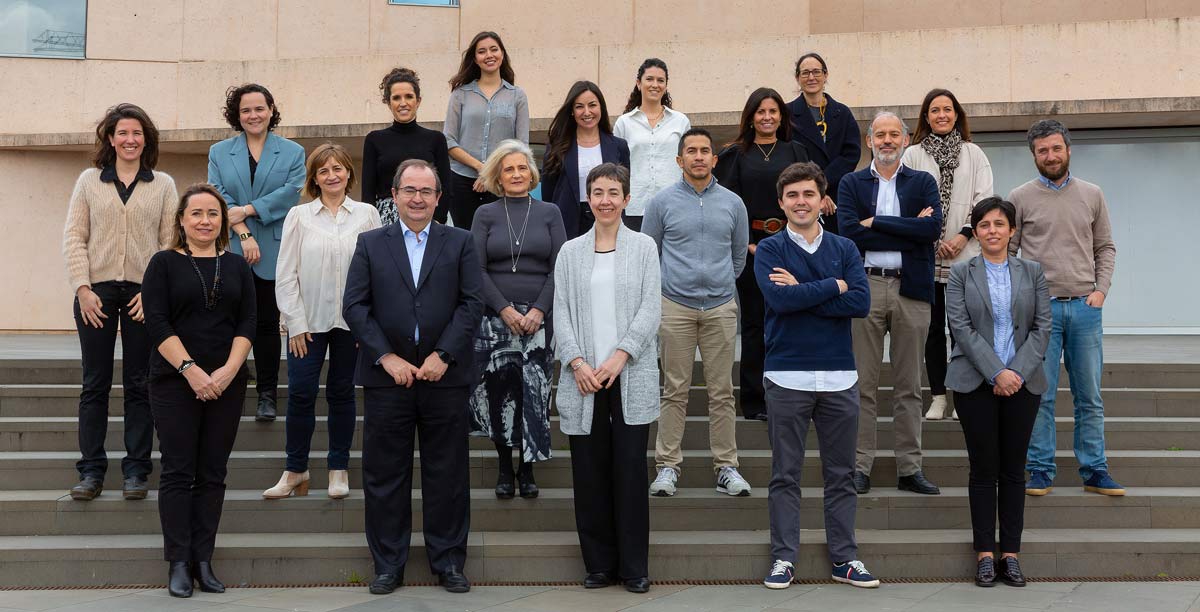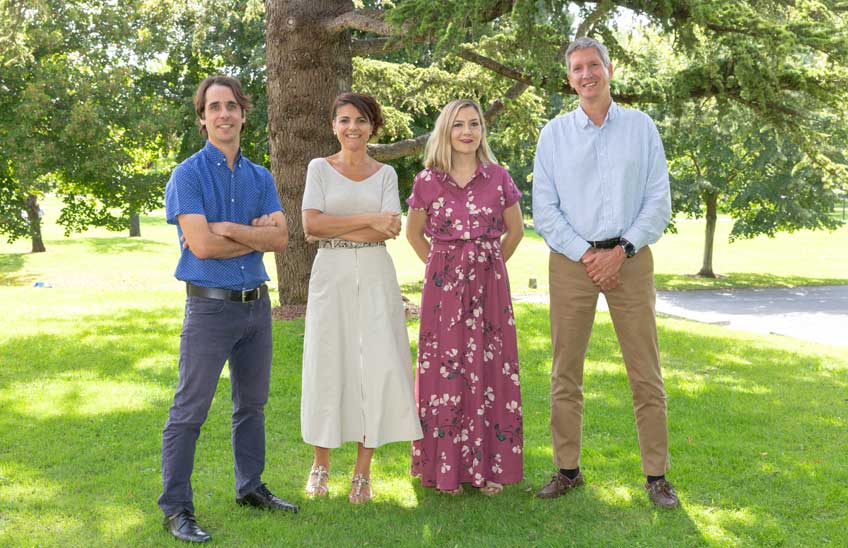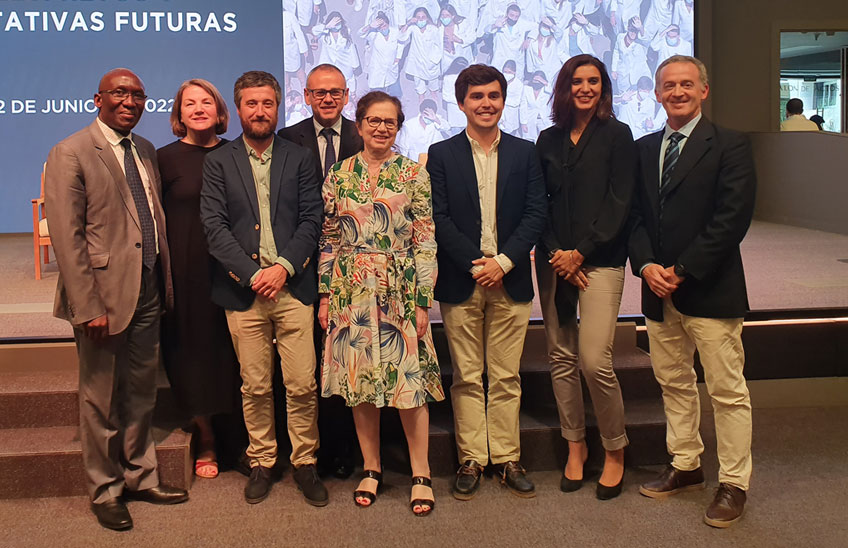The University's group of research in palliative care, designated WHO centre partner
The World Health Organisation thus entrusts ATLANTES Global Observatory of Palliative Care with the assessment of the development of Palliative Medicine in the world.

FotoManuel Castells<br>/Equipo investigador y colaboradores de ATLANTES Global Observatory of Palliative Care
14 | 03 | 2022
The group of research ATLANTES Global Observatory of Palliative Care of the Institute for Culture and Society (ICS) of the University of Navarra has been designated as a World Health Organization (WHO) partner center. For a period of four years it will carry out programs of study and advise on the development of palliative care at the international level. It is the only center partner in this subject in Spain and one of five in the world, located in the United Kingdom, India and South Korea.
According to Marie-Charlotte Bouësseau, WHO Advisor for Service Delivery and Safety, this designation "is the result of the road travelled in recent years with the University of Navarra to implement the commitment made by the 194 WHO member states in 2014 to promote palliative care". In this sense, he added that "the long experience of ATLANTES and its ability to interact with various countries are the basis of the partnership".
This new centre partner will work with the WHO and its regional offices to improve access to good quality palliative care, particularly in countries where it is almost non-existent. For Bouësseau, "this is a fundamental ethical commitment in the service of human dignity. Equitable access to palliative care is a human right that, together with the University of Navarra, the WHO wants to make a reality.
"We believe that building palliative care services is like building a cosy house for the most vulnerable: it requires basic elements and adaptation to the environment and the specific needs of each population.
Research and care experience in palliative care
ATLANTES has received this designation precisely ten years after its constitution. It has an extensive track record in the development of macro-indicators of palliative care, in the compilation of data from various regions of the world and in their graphic and cartographic representation, in the form of atlases.
Dr. Carlos Centeno, researcher principal of group ATLANTES of the ICS and director of the Palliative Medicine Service of the ICS, explained that the plan with the WHO has three pillars. Clínica Universidad de Navarraexplained that the work plan with the WHO has three pillars. "The first is to work with national authorities in countries on different continents. When choosing them, we will take into account that the Organisation is especially committed to the development of palliative care in nations with lower economic levels," he said.
On the other hand, he commented that the team will carry out the assessment of the status of palliative care in some of the regions of the world, which will possibly materialise in the second edition of the Atlas of Palliative Care in Africa. "Finally, we aim to disseminate the methods of assessment so that countries can incorporate them into their routine health monitoring systems," he said.
The team is made up of a team researcher of eight people of different nationalities and trained in disciplines such as palliative medicine, geography, public health, Humanities, data, among others. Its lines of research are "development global", which seeks to contribute to the development of palliative care programmes in the world; "Intangible values", which focuses on the values of care in advanced illness and at the end of life; and "The message", related to the speech of palliative care in society, patients and their families, and health professionals.
ATLANTES Global Observatory of Palliative Care is supported by private institutions such as the "la Caixa" Foundation, the Ramón Areces Foundation, the L'Ontano Foundation and various families and individual donors, whose contributions total €1,050,000, guaranteeing the quality of work researcher and stability for the coming years.
Axis in the University of Navarra's "Strategy 2025".
The Palliative Medicine line is one of the main axes of the "Strategy 2025" of the University of Navarra, which promotes a social impact-oriented research and a scientific production focused, in this case, on the search for personalised solutions for the health care of patients with diseases that involve severe pain.




